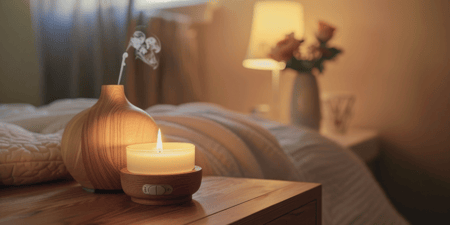
Herbal medicines are used widely in traditional Chinese remedies, Indigenous medicine, and by the Western world. So, how does the approach to herbal remedies differ across the natural therapies?
Across SoulAdvisor, you’ll find numerous practitioners offering herbal medicines as part of their treatment, many of them offering herbal medicine services online.
The homeopath
Homeopaths prescribe remedies made from minute concentrations of harmful substances to stimulate the body’s natural healing properties. These are highly diluted preparations derived from minerals, plant and animal extracts[3].
Centred on the principle that the body has a natural tendency to heal itself, one of the key principles of homeopathy, according to the Australian Naturopathic Practitioners Association[4] is that “any substance that can produce the symptoms of an illness in a healthy human being can cure those same symptoms” in a sick person.
Homeopathy is used for conditions like diabetes, arthritis, bronchial asthma, epilepsy, skin eruptions, allergic conditions, and mental or emotional disorders.
Ayesha Beckman is a homeopath based in Grafton, northern NSW who approaches her clients holistically and generally prescribes a “constitutional remedy” tailored to their individual needs.

“My treatment approach enables me to look deeply at a patient’s presenting complaint and see the patient in their complexity as a whole.
“I use the sensation method - if they are feeling a kind of pain, how do they feel and what do they think they need? This encompasses all issues of their life and I look at all sectors of their life to see where that sensation might be arising again and again,” she explained.
Ayesha, who sees a great deal of stress and anxiety in her clients, explains to them that homeopathy works on the mind-body connection.
“I tell them it works on depression, sleep disorders, migraine and hormonal disorders and often they will say to me: ‘well I have all of those!’”
After prescribing a tailored remedy, Ayesha will check in on the client over the month, getting them to monitor how they feel. If there is an improvement, the remedy can be taken again whenever there is an imbalance in the body.
The Naturopath
A naturopath will work to find the root cause of your health issues and strengthen your immune system, often prescribing herbal medicines or nutritional supplements to support the body to heal itself. Often these are prescribed in conjunction with a diet and lifestyle change.
The Australian Naturopathic Practitioners Association[5] explains the benefits of herbal medicines this way: “Plants are complex medicines with many actions available in a single plant. This is quite different from pharmaceutical formulations that commonly have one action. A herbal formula can be individualised and is able to simultaneously treat a variety of symptoms or body systems.”
Erina naturopath, Emma Drady said many of her clients were currently seeking immune support and supplements for long Covid symptoms.

For these, she usually prescribes astragalus and reishi mushroom - which is good for boosting vitality in general.
“If someone is feeling super fatigued and rundown I will suggest Rhodiola or Siberian ginseng first, then there’s all the other support herbs that work with these symptoms like elderflower, marshmallow and echinacea.
When Emma makes an assessment of a client’s overall health, she looks at all their systems and health history and always aims to treat the root cause.
For online consultations, Emma often mixes up a herbal supplement and posts it out.
The Traditional Chinese Medicine practitioner
Herbal remedies as part of Traditional Chinese Medicine (TCM) are used for a myriad of illnesses including stroke, heart disease, mental disorders, and respiratory diseases (such as bronchitis and the common cold)[6],
Chinese herbal medicines are usually prescribed as part of a TCM treatment plan that can also include acupuncture, cupping and massage, with the overall intention of correcting imbalances and dissolving blockages of qi (vital energy).
Dr Coreena Willoughby is a TCM practitioner and an advocate of preventative health and food as medicine.

She says there has been a strong trend towards “spirit calming” herbal medicines, alongside the usual antivirals, and depending on a person’s symptoms will often prescribe one or more herbal medications.
"Spirit calming” herbal medicinals include ziziphus[7], magnolia[8], valerian[9], hypericum[10] (St John’s wort), curcuma[11], chamomile[12] and passiflora[13]. Some of these are used in combination with Chinese herbal formulas such as Gui Pi Wan[14], Tian Wang Bu Xin Wan[15] and An Shen Ding Zhi Wan[16],” she said.
Traditional healing and bush medicines
The world’s oldest known civilisation, the Aboriginals, have used their own herbal remedies, commonly known as bush medicines, for thousands of years.
Ngangkari Healing[17], originating from the Anangu Pitjantjatjara Yankunytjatjara[18] (APY Lands) in central Australia, incorporates massage, breath, ceremony and traditional plants or mixtures to release blockages and heal ailments.
Bush medicine is used widely throughout Indigenous communities across Australia and techniques and products often vary, depending on the geographical area.
The Noongar people of south-west Western Australia, for example, used 90 different species of medicinal plants as detailed in Noongar Bush Medicine[19]
A study analysing ancient campfires[20] in Australia’s Western Desert showed that wattle was integral to the lives of the Martu people for 50,000 years. Wattle was used to “treat aches, pains and infections, most commonly through infusion and smoke treatment”.
Indigenous bush remedies are gaining recognition from scientists[21] - like the Centipede cunninghamii (also known as Old Man’s Weed), used by the Wotjobaluk people to treat arthritis and joint pain; or the Kangaroo Apple, boiled and used as a tea to avoid pregnancy.
Before using any herbal medicines or supplements, make sure you seek advice from your doctor.
If you would like to explore some therapies using herbal medicine, you can start with a discovery call with a SoulAdvisor practitioner specializing in food as medicine here.
References
1. Herbal Medicine, 2nd edition. NIH; 2011.
2. Herbal medicine. Australian Naturopathic Practitioners Association; [cited on 2025 Jan 2].
3. Homeopathy. Australian Naturopathic Practitioners Association; [cited on 2025 Jan 2].
4. Homeopathy. Australian Naturopathic Practitioners Association; [cited on 2025 Jan 2].
5. Herbal Medicine. Australian Naturopathic Practitioners Association; [cited on 2025 Jan 2].
6. Traditional Chinese Medicine: What You Need To Know. NIH; [cited on 2025 Jan 2].
7. Ziziphus. ScienceDirect; [cited on 2025 Jan 2].
8. Cassidy C. Magnolia. RxList; [cited on 2025 Jan 2].
9. Valerian health benefits. RxList;
10. Herbal Medicine, 2nd edition. NIH; 2011.
11. Hewlings S, Kalman D. Curcumin: A review of its Effects on Human health. Foods; 2017.
12. Gupta N. Chamomile: A herbal medicine of the past with a bright future (Review). Molecular Medicine Reports; 2010.
13. Passionflower - Uses, Side Effects, and More. WebMD; [cited on 2025 Jan 2].
14. McPhillips K. The One Tincture to Keep in Your Bag for Immediate Natural Bursts of Energy. Well+Good; 2018.
15. Yang XQ, Liu L, Ming SP, Fang J, Wu DN. Tian Wang Bu Xin Dan for Insomnia: A Systematic Review of Efficacy and Safety. Evidence-based Complementary and Alternative Medicine; 2019.
16. An Shen Ding Zhi Wan: Zizyphus & Polygala Formula [BP001]. Chinese Medicine Foundation; [cited on 2025 Jan 2].
17. Ngangkari – Traditional Healers. NGAANYATJARRA PITJANTATJARA YANKUNYTJATJARA WOMEN’S COUNCIL (ABORIGINAL CORPORATION); 2023.
18. Aṉangu Pitjantjatjara Yankunytjatjara. Wikipedia; 2024.
19. Noongar Bush Medicine: Medicinal Plants of the South-west of Western Australia. The University of Western Australia; [cited on 2025 Jan 2].
20. Cassidy C. Wattle used for tools, food and medicine by Western Desert traditional owners for 50,000 years, study shows. The Guardian; 2022.
21. Aboriginal Bush Medicine – Uses of Kangaroo Apple. Imperial Bioscience Review;
Disclaimer: This Content has been developed from our generous global community and is intended for informational purposes only. This Content is not, nor is it intended to be, a substitute for professional medical advice, diagnosis, or treatment and should never be relied upon. Further, the personal views and experiences published are expressly those of the author, and do not represent the views or endorsement of SoulAdvisor through the act of publication on our site.




























































